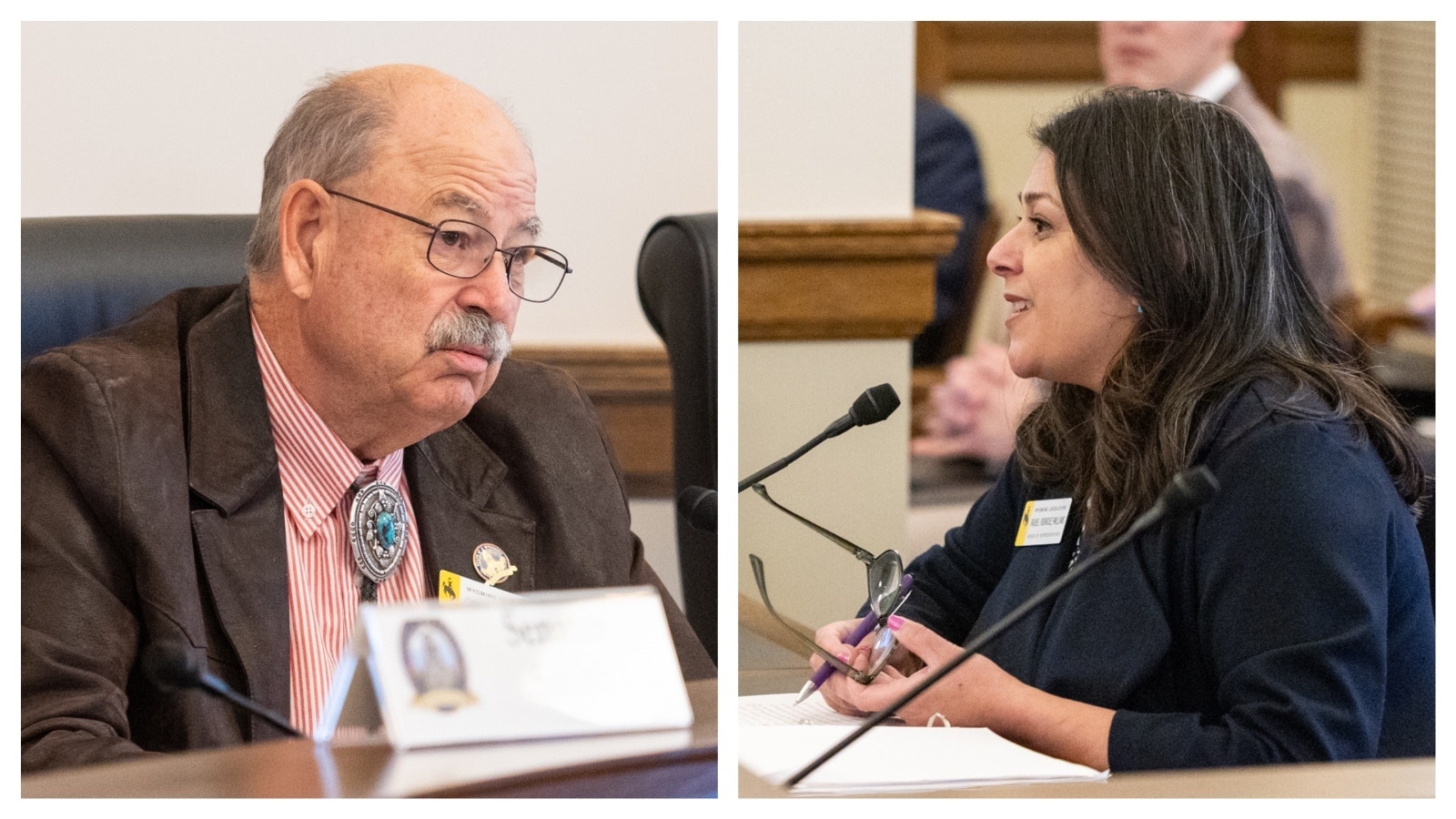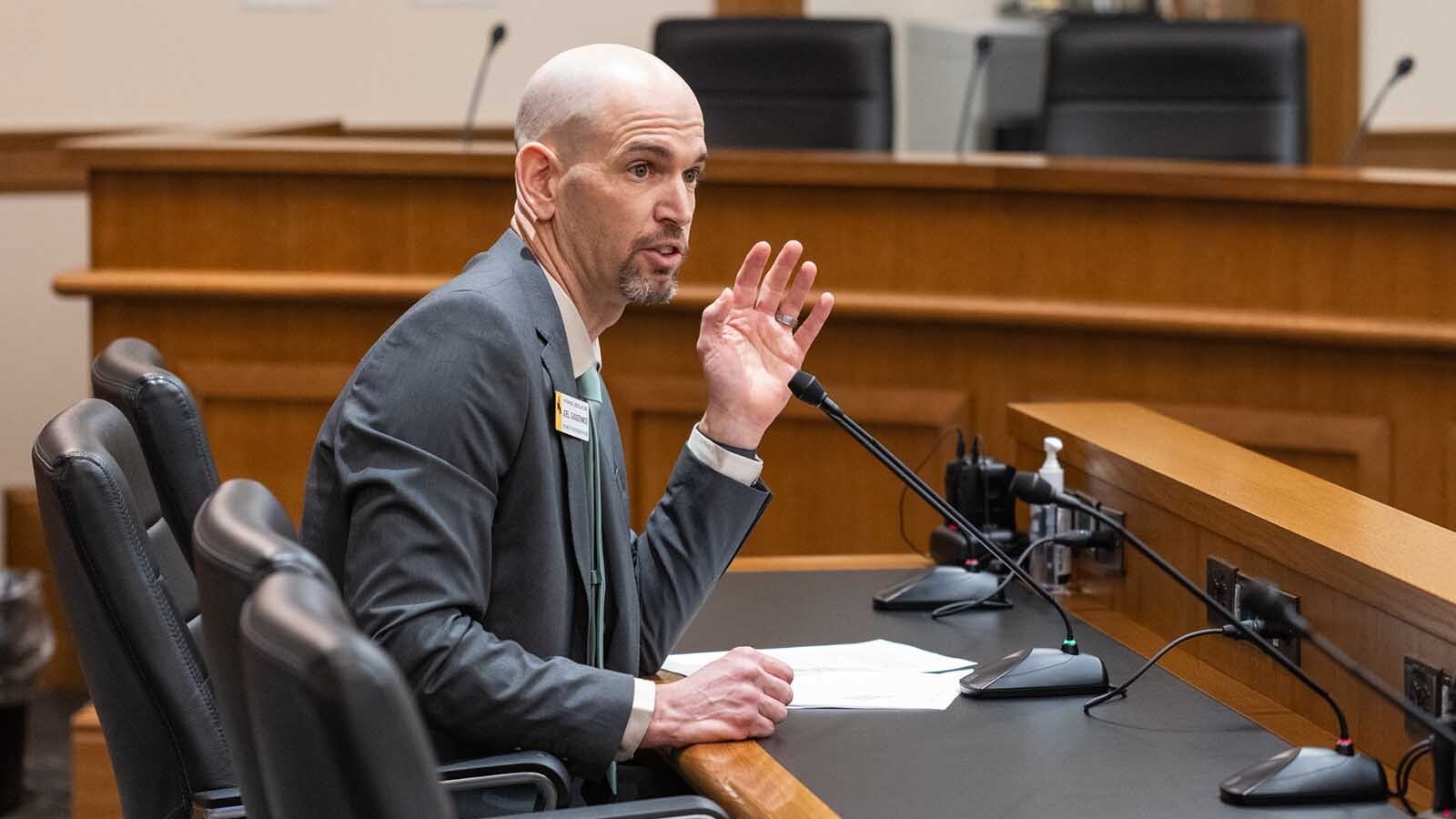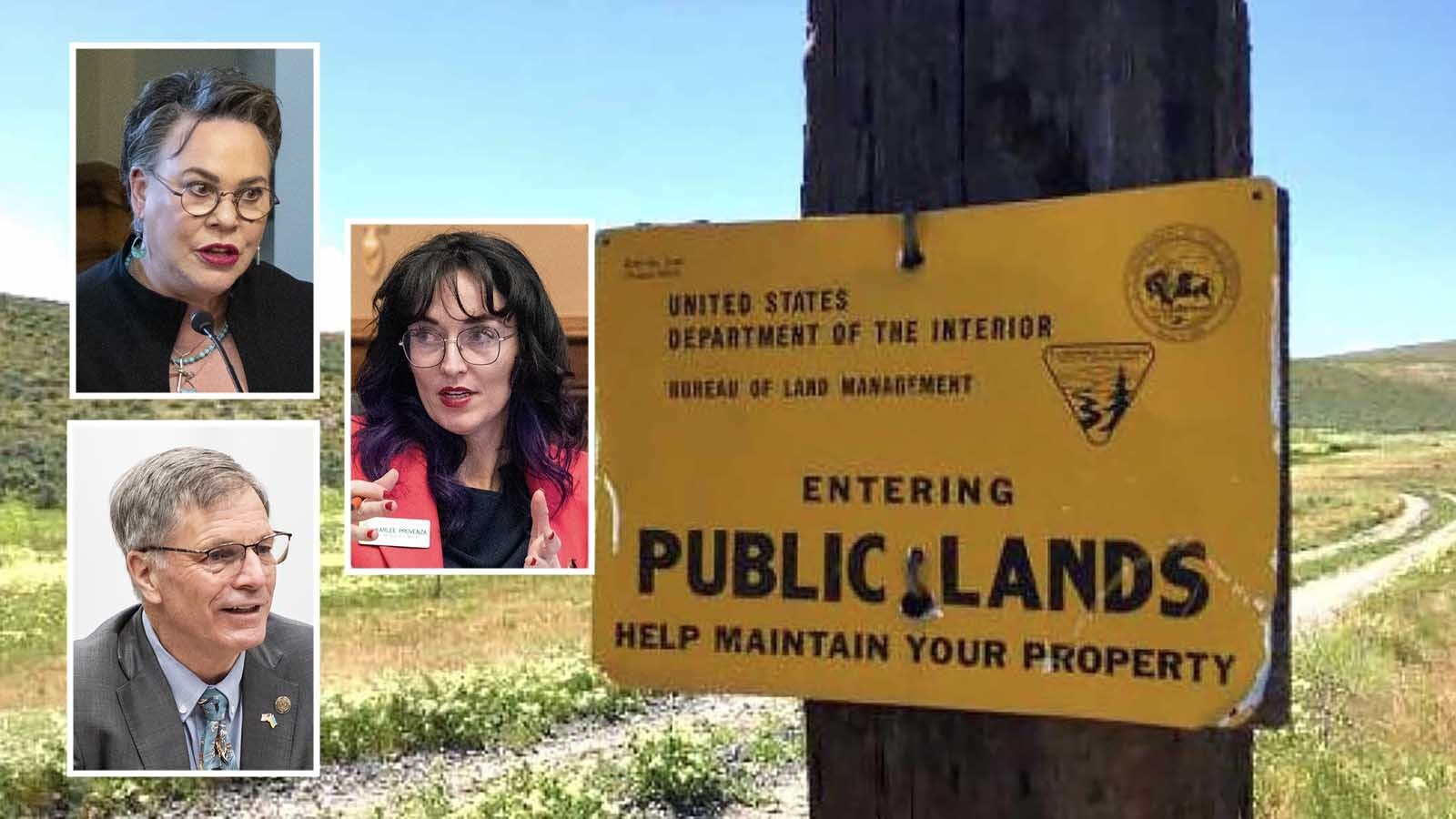The Wyoming House of Representatives voted Monday in favor of a law designed to keep American Indian children out of non-native foster and adoption homes.
The House voted 34-21 to adopt the federal Indian Child Welfare Act (ICWA) on a state level, so that Wyoming can continue the 1978 federal law even if the U.S. Supreme Court overturns it this summer. The state bill, Senate File 94, must survive two more readings in the House, approval from the Senate on changes made to it, and the governor’s desk to become law.
“In order to understand why the federal ICWA bill exists in the first place, you need to understand about our history,” said Rep. Ken Chestek, D-Laramie, who voted in favor of passing SF 94. “Allowing non-Indian parents to adopt Indian children was one technique in history to eliminate the tribes. Let’s be frank about that.”
Chestek pointed to the harsh assimilative policies that first led the federal government to pass the act in 1978. Some of these included disproportionate removal of native children from their homes in tribes, and putting them in white boarding schools where they were disciplined for speaking their native language and sometimes endured abuse.
‘Racism Is Bad, Period’
Rep. Clark Stith, R-Rock Springs, countered, noting issues with the law itself that have emerged since its passage.
He said he believes the law is racially discriminatory because it treats native children and non-native children’s cases differently.
ICWA uses a legal standard that makes it nearly impossible for native children’s parents to lose their parental rights, whereas parents of non-native children who have repeatedly demonstrated abuse or neglect can lose their parental rights in state courts.
The result is that in some cases, estranged parents can reclaim their children from foster homes that have been the only family they ever have known.
“There are those who believe that there is good racism and bad racism,” said Stith. “I do not believe that. I believe racism is bad, period. And the Equality State should not endorse racism.”
Best Interests
Stith also said the law places political interests above children’s individual interests.
“So what this bill says,” Stith said, “is that the child, an Indian child will be first put into an Indian group home before being placed with a nonnative family.”
The federal ICWA law, and the state bill matching it, mandates that Indian children taken into protective custody should be placed with a family member, or a fellow tribal member, in any other Indian home, or in a tribal group home – before being placed with a non-native family.
Stith said that the bill contains no language referencing children’s best interests.
“It doesn’t use that phrase because ICWA is set up so that the individual best interests of the child are not the priority,” he said, adding that tribal political interests, “the value of the group” are the focus of the law instead.
Chestek disagreed, saying preserving a child’s culture is inherently in his or her best interests.
Pure As Driven Snow
Some oppose the bill because they believe children often were taken out of foster homes to be placed back into homes on the Wind River Indian Reservation, where many houses are crowded and some lack running water.
Chestek said having running water is a Western culture value that shouldn’t be used as a standard to undermine how meaningful tribal culture is to its members.
The bill’s co-sponsor Rep. Lloyd Larsen, R-Lander, also pushed back on this characterization, saying that people outside of Wyoming’s cowboy culture would be appalled to find young children waking before dawn to perform hard work on farms and ranches.
Larsen rebutted stories about children who have suffered from permanency issues under ICWA’s high parental-rights termination standard.
“You’ve all received lots of emails,” said Larsen. “We had an article in the newspaper about the horrific situations that have happened to children that were taken out of a stable foster home and sent back, perhaps, to a reservation where things happened that were unfortunate.”
Larsen said those outcomes are not right, but “that’s a two-way street” and some non-native foster families and returning parents also abuse children.
“To think we’re as pure as the wind-driven snow and free from any inappropriate action I think is false,” said Larsen.
The House amended SF 94 to make it expire in 2027 unless lawmakers decide to perpetuate it.
Both the Eastern Shoshone and Northern Arapaho Tribal governments support SF 94, as does Gov. Mark Gordon.
Racial Or Political Classification
There are multiple foster families challenging the federal ICWA law in the U.S. Supreme Court. Their arguments match Stith’s, that ICWA subjugates children to tribal political interests and is racially discriminatory.
If the federal act is racist, Wyoming’s state law would be deemed unconstitutional under the equal protection clause of the U.S. Constitution as well.
The families also are arguing that the federal ICWA is an overreach of Congress’ power. If the high court throws out the law but only does it on a states’-rights basis, then Wyoming could keep its own version of the law.
The court is expected to rule on the case by June.





